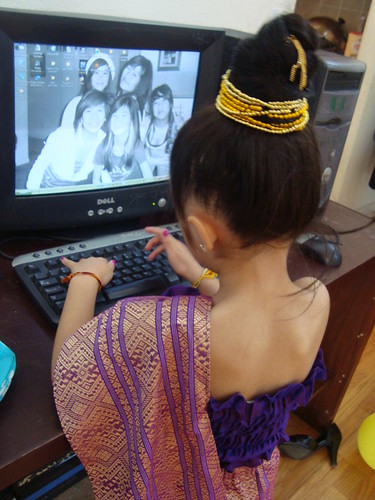
How tragic, to learn a language but have nothing interesting to say.
I get many questions from across the country from people who want to set up Lao language classes. They believe it will preserve our culture and that there is a culture worth preserving. I agree and applaud this.
I've seen a number of approaches that I think are promising and well-intentioned but I am obliged to point out a number of hazards that undermine these efforts, at least in the US.
I wonder how efforts in the other major expatriate zones such as Australia, France, Canada, Japan and Thailand are going to preserve Lao language and culture.
We must go beyond sentimental attachment. We must build the language to be a powerful approach to expressing key transformative ideas.
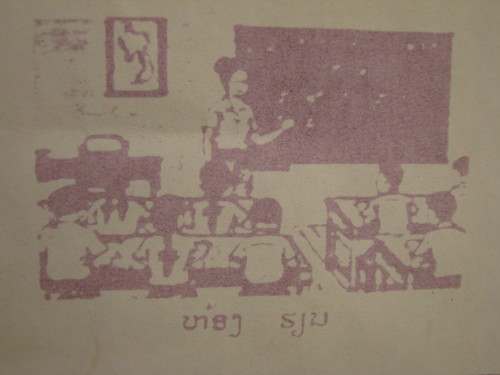
There are some great programs such as the SEASSI program in Wisconsin to learn Lao.
But as an 8-week intensive program, it is difficult for many to take that much time off if they aren't in college and in the Midwest.
With over 200,000 Lao in the US, we need some truly interesting, innovative and sustainable methods to encourage Lao learning.
People always take time to learn the comparably difficult languages of Chinese, Japanese, and Korean. Why? Because there's something interesting to be found at the end for having mastered them.
At the moment we can barely fill even a single bookcase. And how many shelves would contain genuinely interesting books in Lao?

The best ways to 'preserve' a language takes place in the home and among others.
It is not about preserving the language for language sake, but to actively give the words a chance to speak of pasts, presents and futures.
If our arts do not continue to work to speak what our children need to be able to say, then those arts fade away. The same with language.
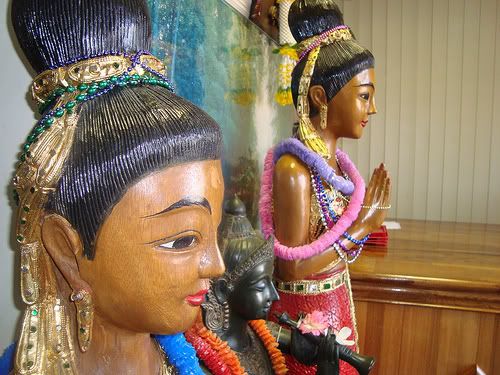
Wittgenstein says 'the limits of my language are the limits of my world.' If you can't say it or express it, you don't have it, you've lost it, or you can't move towards it. You are just a creature without power, constantly moved and herded by others.
And as Lao, as we continue our 600 year journey to be and remain a people, we must recognize this is ultimately counter to the dreams of those who've come before us.
We don't want to be like the last two guys in the world who speak Ayapaneco who won't talk to each other because they don't think the other person is very interesting.
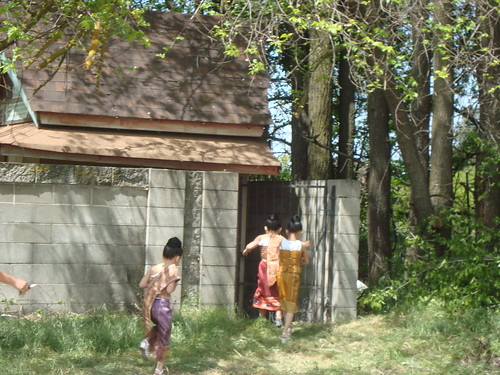
There are many ways to teach the Lao language, but for it to be truly meaningful, parents, families and classrooms must also teach our children to be passionate thinkers. We must instill them with a thirst for knowledge, promote curiosity, inquiry and a desire to express interesting ideas. Ideas that transform not just themselves, our even our society, but whole nations, and yes, even worlds we have not yet reached.
How terrible it would be to one day be a society that makes it to another planet, only to find we add nothing positive to the great cosmic dance, bringing only quarrels and dull thinking to the heavens.
We need to encourage applied language courses and methods that reward innovative thinking and encourage interest in expressing things in Lao. When was the last time someone said: "It's much more profound in the original Lao."
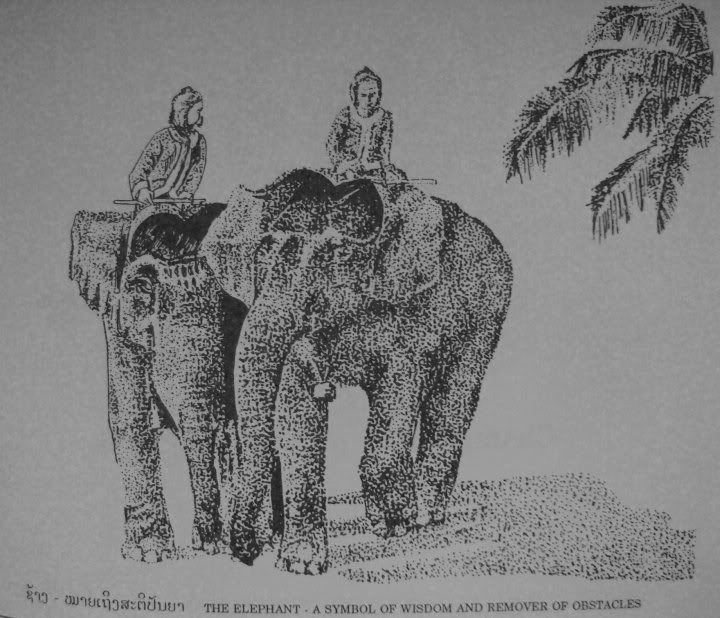
We need to keep the language flourishing because at the moment, no one regularly complains 'why are you using such big Lao words?' If we maintain a simple language, we become a simple people with only a simple future. And people with simple futures rarely arrive at a good happy ending.
Especially within the US, where freedom of speech is protected, Lao communities ought to explore the possibilities that come from good debate and speech clubs that encourage public speaking and logical thinking and research skills. Spelling bees are one approach but even better are approaches such as Future Problem Solvers that build robust thinking in youth.
But what do you see as needs within our community that our language programs need to address?
We don't want to be like the last two guys in the world who speak Ayapaneco who won't talk to each other because they don't think the other person is very interesting.

How terrible it would be to one day be a society that makes it to another planet, only to find we add nothing positive to the great cosmic dance, bringing only quarrels and dull thinking to the heavens.
We need to encourage applied language courses and methods that reward innovative thinking and encourage interest in expressing things in Lao. When was the last time someone said: "It's much more profound in the original Lao."

We need to keep the language flourishing because at the moment, no one regularly complains 'why are you using such big Lao words?' If we maintain a simple language, we become a simple people with only a simple future. And people with simple futures rarely arrive at a good happy ending.
Especially within the US, where freedom of speech is protected, Lao communities ought to explore the possibilities that come from good debate and speech clubs that encourage public speaking and logical thinking and research skills. Spelling bees are one approach but even better are approaches such as Future Problem Solvers that build robust thinking in youth.
But what do you see as needs within our community that our language programs need to address?
1 comment:
Es muy cierto, las palabras no son solamente la sumatoria de consonantes y vocales.
Las palabras bien logradas deben expresar pensamientos y sentimientos, deben conmover, deben generar nuevas ideas... ser capaces de cambiar ideas para el bien.
Aprender el idioma laosiano como aprender cualquier otra idioma es una forma de conocer una cultura y a la gente que lo compone.
El proximo paso es explorarlo y redescubrir su significado. Depende de todos nosotros crear ese “something interesting to be found at the end “. Darle un contenido a las palabras, darle una forma.
Alguna vez escuche decir que es necesario: “Saber de dónde venimos para saber a hacia dónde ir” creo que esta frase tiene mucha relacion con la busqueda de ese --algo interesante-- dentro de nuestra cultura.
Post a Comment